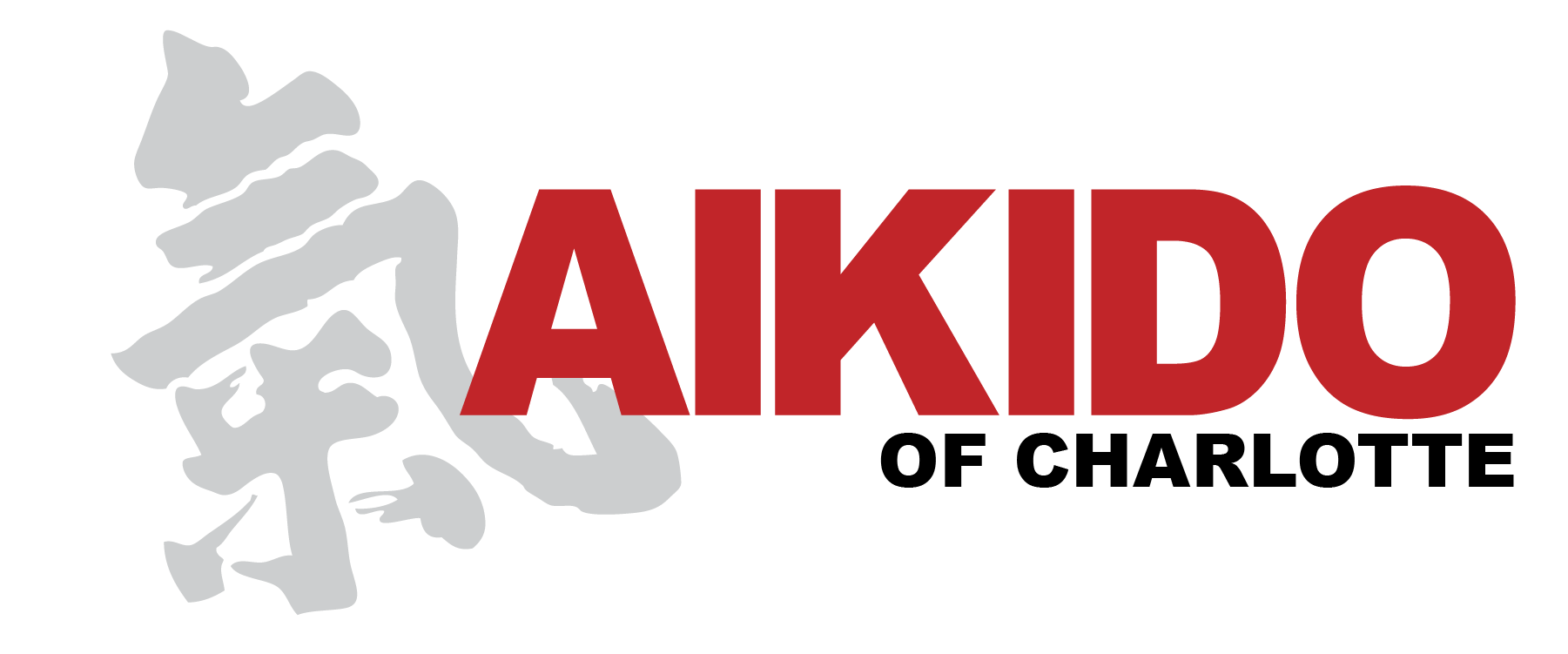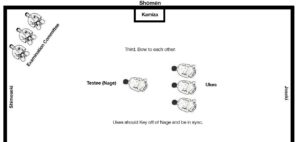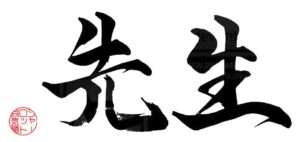Aikido is frustrating. It’s supposed to be.
You’re sitting there. Your legs hurt after a bunch of suwari-waza. The instructor demonstrates a technique, and you can tell there’s some subtlety to it. He shows it 3 times, pronounces its name, and says “Ok, partners”… and there you are, left mainly to your own devices.
You feel like you follow along well enough as uke, but then as nage, you don’t get it. You maybe don’t even GET what you don’t get. You receive some correction, but it doesn’t make the technique fully clear or resolve all of your questions… And what do we do with questions? We ASK them…
Except, not in aikido. NOT during practice.
In our culture, we are brought up to ask questions. We are encouraged to ask, and in most aspects of life, we are rewarded for them with explanations leading to a more acute understanding. “Ask and ye shall receive.” Even our government was once revolutionary in its dependence upon questioning policy and authority; dissent and discussion.
Aikido is different. It HAS to be experienced. You HAVE to fail. It will resist every attempt to convey it orally. That’s not to say you can’t talk about it or read about it – that absolutely enriches your practice. But don’t expect giving voice to your concerns to improve your technique where “the rubber meets the road” (or where “the face meets the mat”, for that matter). Ridiculous though it may sound, “he who questions training only trains himself at asking questions”.
It is particularly inappropriate to ask for specifics in the middle of class for a couple of reasons. For one, it is not inline with the traditional way in which budo is communicated – namely through demonstration and repetition. For another, an art like aikido can’t be put in a box or learned from diagrams, any more than you can learn to swim by clicking through a powerpoint slideshow – you have to get in the water! Moreover, these questions take the instructor out of the pedagogical flow he or she is seeking to establish. If you’ve got to follow up on the “what” and “how” or a technique, wait until after class. Avoid “why” altogether – unless you appreciated your mom’s response when you asked “why” you had to take out the garbage, you won’t like the answer. Maybe she said “because I said so”. I’ll say “Trust the path.”
On a certain level, this can seem a challenge at best and infuriating at worst. But when you realize that you are subscribing to a centuries-old philosophy of learning and preserving an art which has been evolving for generations, you find that it’s not a liability at all. It’s exactly what you signed up for. By feeling your way through this art with the guidance of your teacher, you will develop your own connections, conscious and otherwise. You will come appreciate the fluidity of the movements, the symmetry of the positions, and the adaptability of the techniques. You will internalize those elusive, conceptual points which you initially took for granted. In short, you will find the way to make aikido your OWN… which dissolves a question too colossal to voice, let alone answer.
So yeah. Aikido is frustrating. It’s supposed to be.
5 Questions with our Chief Instructor – Part 2
5 Questions with our Chief Instructor – Part 2 Jared Heintz: Aikido is often praised for its applicability in self-defense situations. Could you discuss how Aikido techniques can be adapted to real-world scenarios, and what mindset one should cultivate in such situations? Weiner Sensei: As I approach 25 years of Aikido practice, I’ve realized that…
Rank Testing Bowing Reiho – Advanced
Rank Testing Bowing Reiho – Advanced Andy Demko Shihan likes to say, “The little things don’t mean a lot, they mean everything”. Everyone who has practiced in our dojo or visited has seen that we take Reiho (Etiquette) pretty seriously. In all that we do, practice. Bowing. Addressing each other & more. I learned a…
Sensei
Sensei 先生 The two characters that make up the term can be directly translated as “born before,” and imply one who teaches based on wisdom gained from age and experience. In general usage, it is used, with proper form, after a person’s name and means “teacher.” In Japan, the word is also used as a…



